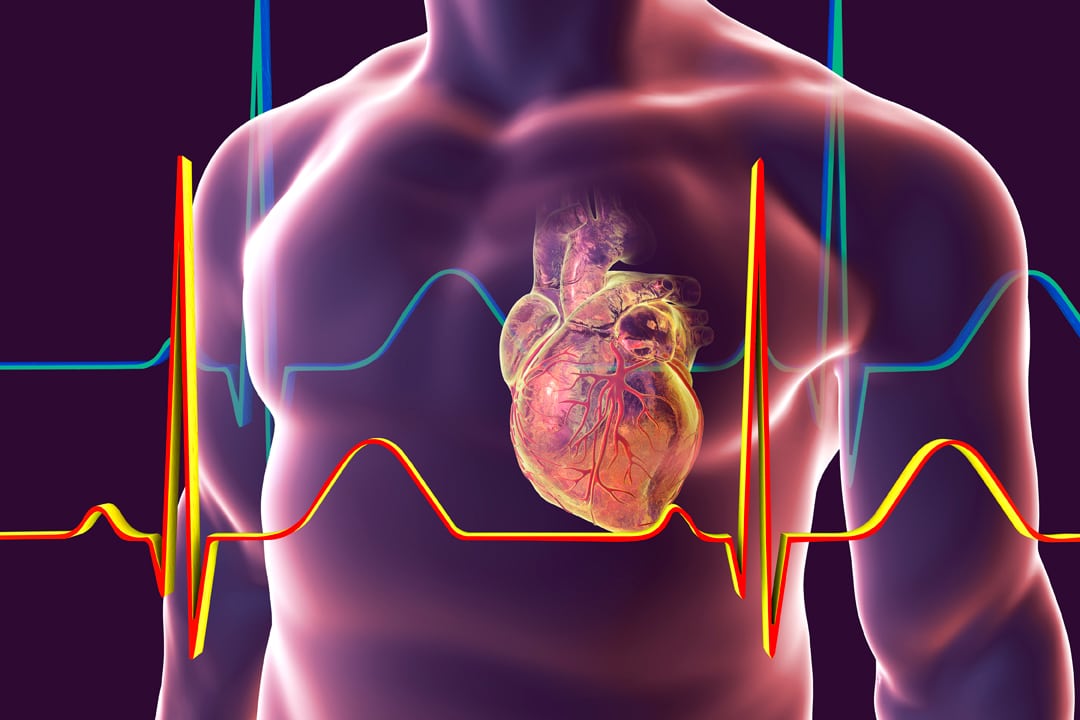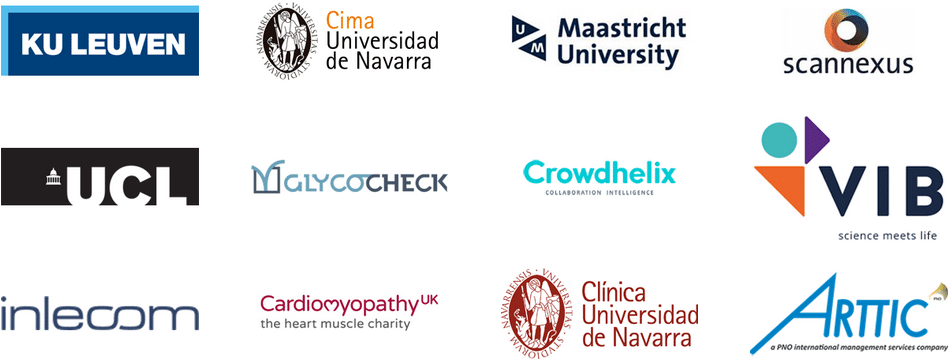The CRUCIAL Project
Vascular dementia and heart failure represent major health burden to morbidity, mortality and quality of life.
Comorbidities (hypertension, aging, diabetes, etc.) affect all organs, but the brain and heart are especially sensitive to these chronic stresses resulting in cognitive impairment (a mental disorder) and heart failure (a non-mental disorder). These comorbidities also induce a reduction in microvascular density, called microvascular rarefaction. Diagnosis of microvascular rarefaction is limited by the inability to assess microvascular density. We have built a consortium, CRUCIAL, which will develop a coordinated program to establish clinical tools to measure rarefaction and investigate the role of microvascular rarefaction in cognitive impairment and heart failure.
The CRUCIAL Consortium
The consortium brings together 12 partners from multiple fields (clinicians, fundamental scientists, scientific SMEs, exploitation and dissemination SME, management SME, and a patient advocacy), representing 7 different countries.

Vascular Dementia
7.7 million people in Europe are estimated to have dementia and with an aging population this is expected to double by 2040.

Heart Failure
Every year in Europe, 3.6 million people are newly diagnosed with Heart Failure (HF).

CRUCIAL solution
We will investigate sex difference in all patient cohorts and in the experimental model.


Partners
European countries
Project duration (months)
Third General Assembly for CRUCIAL
The CRUCIAL consortium held its third General Assembly on the 8 and 9 February 2023. The meeting was hosted by KU Leuven and was the first face to face meeting for the consortium since the kick off of the project in February 2020. Representatives from all partner...
Second General Assembly for CRUCIAL
The CRUCIAL consortium held its second General Assembly on February 10, 2022. The meeting was held virtually once again, during which all consortium representatives discussed and decided to extend the project's duration by one year. The COVID-19 pandemic had a...
Regular meetings of the basic science work packages
To ensure productive collaboration, the CRUCIAL partners involved in the basic science work packages of the project hold regular meetings. These meetings include representatives from Maastricht University (UM), the Flanders institute for biotechnology (VIB) and KU...
Alzheimer’s is most common form of dementia, but vascular dementia is second most common and corresponds to 20% of all cases of dementia. Vascular dementia is caused by reduced blood flow in the brain. It was originally thought to be cause by stroke injury, but it is now recognized that increased microbleeds and general reductions in blood cerebral blood flow are responsible for the vast majority of cases. While some treatment option to improve cholinergic function are available for Alzheimer’s, no treatment options are available for vascular dementia other than treating the underlying comorbidities, such as hypertension. However, even if the comorbitidies are kept under control, this only delays but does not prevent the eventual development of vascular dementia.
It is the most prominent cause of hospitalizations, with an economic cost of billions of euros per year (European Society of Cardiology). Heart failure can be divided into two types: HF with reduced ejection fraction (HFrEF) and HF with preserved ejection fraction (HFpEF). While the morbidity, mortality and healthcare expenditures are approximately equal between HFrEF and HFpEF, no therapies with demonstrated efficacy are available to treat HFpEF. This is in contrast to HFrEF, that can be managed by blocking neurohumoral hyperactivation. In HFpEF, we have no medical therapies to treat tens of millions of affected individuals all over the worlds; rather, we are relegated to treating symptoms. In fact, it has been said that HFpEF is the single greatest unmet need in cardiovascular medicine.
The overall concept of the application is that vascular rarefaction is a common mechanism between cardiac and neurological diseases that arise from metabolic comorbidities. Both these diseases have no treatment options. We propose that by identifying patients showing vascular rarefaction, we can identify those that are at risk of developing heart failure and/or vascular dementia. We propose that by studying the mechanism of rarefaction, we can identify pharmacological targets that could prevent vessel rarefaction and therefore inhibit disease progression.
This project aims to develop microvascular perfusion measurements by MRI as a method to identify microvascular rarefaction. We will do this both by advanced imaging techniques but also by validating that the changes in microvascular/myocardial perfusion correlate to changes in microvascular density. The advancement of the imaging technology will be done through a collaboration between industry and clinical scientists. This will establish microvascular perfusion as a key biomarker to stratify patients with cognitive impairment and/or heart failure.
We also aim to show that measuring microvascular density and/or perfusion is an important clinical parameter. This could ultimately lead to a change in the diagnosis criteria in VCI and/or HF. We will study whether rarefaction is a causative mechanism of disease progression in VCI (mental disease) and HFpEF (non-mental disease). The heart and brain share a special link because the functional cell unit of both organs are long-lived cells that are post-mitotic and are interlinked with their vascular supply; they share the need for high levels of oxygen for adequate organ function making them more sensitive to ischaemia. By studying this, both in patients and in animal models, we can investigate how microvascular rarefaction relates both to onset and to progression of VCI and HFpEF.
We will investigate other possible biomarkers of vessel rarefaction. MRI is expensive and since rarefaction is likely not limited to the heart and brain, we will investigate whether we can identify rarefaction more cost-effectively (e.g. whether regressing vessels release microvesicles that could be used as a biomarker, or sublingual/retinal microvascular changes). This will represent a significant cost reduction for identification of vessel rarefaction.
We will investigate sex difference in all patient cohorts and in the experimental model. Women with comorbidities have a higher risk of developing HFpEF and VCI than men with the same comorbidities. Insight from sex differences could therefore identify causal mechanisms.
We also have preliminary results identifying the anti-oxidant pathways being dysregulated in the presence of comorbidities. The objective is that by studying oxidative stress handling in the presence of comorbidities, we could identify target gene pathways to develop drugs against vessel rarefaction in VCI and HF.







